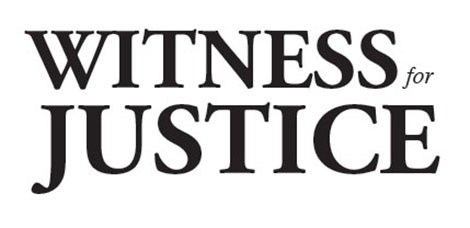Commentary: Working for Justice is Intergenerational
 A few years ago I sat around a table with my colleagues at the national offices of the United Church of Christ. As we were waiting to address the topic for the meeting, one of my colleagues mentioned that he had been on the phone that morning with one of our churches whose rainbow banner had been vandalized. The church was seeking advice on how to deal with this. Several people spoke up – asking questions and offering help.
A few years ago I sat around a table with my colleagues at the national offices of the United Church of Christ. As we were waiting to address the topic for the meeting, one of my colleagues mentioned that he had been on the phone that morning with one of our churches whose rainbow banner had been vandalized. The church was seeking advice on how to deal with this. Several people spoke up – asking questions and offering help.
I asked if, in the course of the conversation, the person calling from the church had asked how to talk with their children and youth about this act of violence. They had not. I believed then, and I believe now, that not addressing what happened to the banner with the church’s children and youth was a lost opportunity for faith formation and helping them understand God’s dream of a just world for all.
After all, they know that it happened. Just because we don’t directly tell our children and youth about something that happens in our churches doesn’t mean they don’t know about it – because they do. By specifically addressing this with them the church had the opportunity to talk about why displaying the banner is important for the church’s justice witness and to talk about the appropriate response to the people who committed the vandalism. This discussion could help the children and youth connect this stand for justice with the life of a person who follows Jesus and understand that God loves everyone even those who deface property that does not belong to them.
When we leave children and youth out of our discussions about and concrete actions for justice in our world we deprive them of an important piece of their faith formation as they never learn to connect what they learn at church with the shalom of the reign of God. Kathleen and James McGinnis, in their book Parenting for Peace and Justice, offer some tips for involving children in social justice activities.
- Invite children to join you in social action that is within their capabilities.
- Give them age appropriate experiences with victims of injustice.
- Integrate fun whenever possible and remember involvement means “with” not “for.”
Family Protest, a new video from the Riverside Church of New York City, provides some concrete ideas for your church and your families.
And, I would add a fourth tip – always make the connection between working for justice and being a follower of Jesus. We fight injustice and work for a just world for all because this is what people who love God and follow Jesus do. So the church with the defaced banner might have said “We hang this banner because we believe that God loves everyone and no one should be mistreated because of who they love. This is what people who follow Jesus do.” Making that connection will help your church and your families grow children and young people who both love their neighbors and love Jesus.
Ivy Beckwith is Faith Formation Team Leader for the United Church of Christ.
View this and other columns on the UCC’s Witness for Justice page.
Donate to support Witness for Justice.
Click here to download the bulletin insert.
Related News
Demystifying the Stigma of Mental Illness
Like many others, I come from a family system that placed taboos on speaking publicly about...
Read MoreStaying Grounded in Tumultuous Times
For years I have referred to myself as a peace-loving hippie-type pacifist who believes that...
Read MoreVision and Reality
In 1215, at Runnymede in England, King John signed the Magna Carta. The mythos surrounding...
Read More
